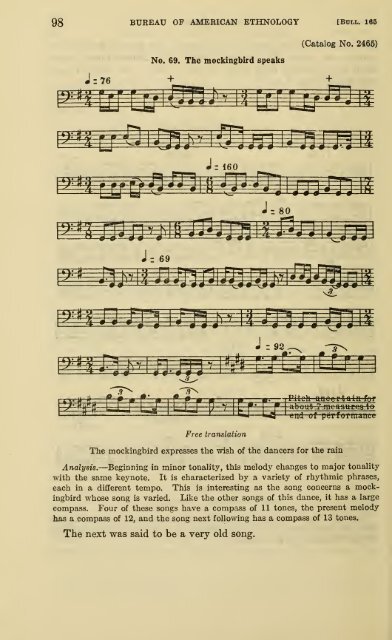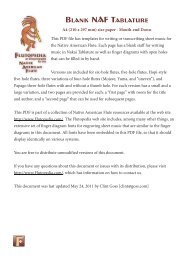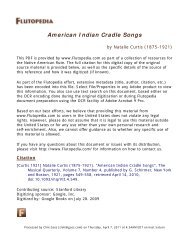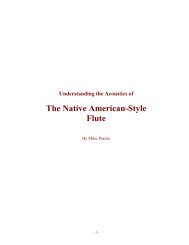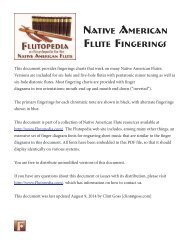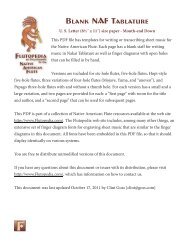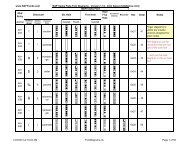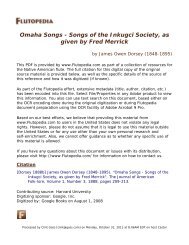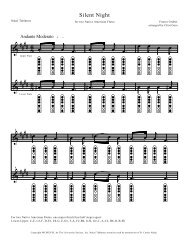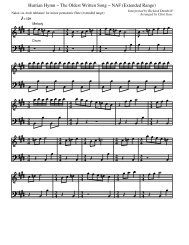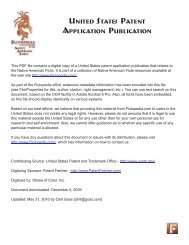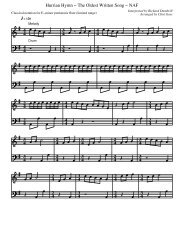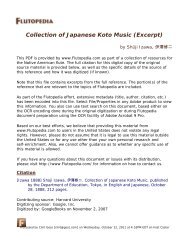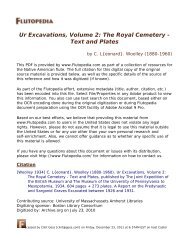Music of Acoma, Isleta, Cochiti, and Zuñi Pueblos - Flutopedia.com
Music of Acoma, Isleta, Cochiti, and Zuñi Pueblos - Flutopedia.com
Music of Acoma, Isleta, Cochiti, and Zuñi Pueblos - Flutopedia.com
Create successful ePaper yourself
Turn your PDF publications into a flip-book with our unique Google optimized e-Paper software.
—<br />
—<br />
98 BUREAU OP AMERICAN ETHNOLOGY [Bull. 165<br />
(Catalog No. 2466)<br />
No. 69.<br />
+<br />
The mockingbird speaks<br />
J: 80<br />
^g ^5 wiVim'iP *-« 0-<br />
><br />
.^_^ ^ ^^<br />
1^<br />
W-^-J<br />
J-.<br />
L:j±J-->i ^ ""^i i i^ai^^ jr/<br />
|<br />
J^l^^i^<br />
Free translation<br />
The mockingbird expresses tlie wish <strong>of</strong> the dancers for the rain<br />
Analysis.—Beginning in minor tonality, this melody changes to major tonality<br />
with the same keynote. It is characterized by a variety <strong>of</strong> rhythmic phrases,<br />
each in a different tempo. This is interesting as the song concerns a mockingbird<br />
whose song is varied. Like the other songs <strong>of</strong> this dance, it has a large<br />
<strong>com</strong>pass. Four <strong>of</strong> these songs have a <strong>com</strong>pass <strong>of</strong> 11 tones, the present melody<br />
has a <strong>com</strong>pass <strong>of</strong> 12, <strong>and</strong> the song next following has a <strong>com</strong>pass <strong>of</strong> 13 tones.<br />
The next was said to be a very old song.


